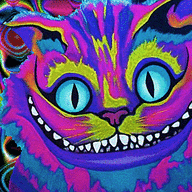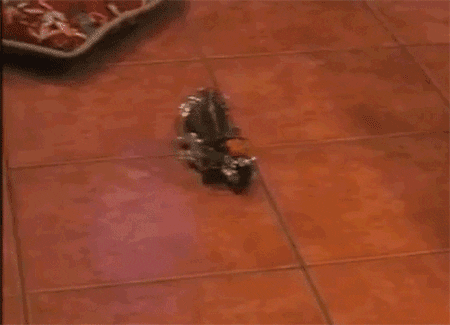D
Deleted member 2205
1/1000000
- Joined
- Jul 1, 2019
- Posts
- 17,508
- Reputation
- 22,882
What is conciousness? What makes you?
Some argue that your brain makes you. That would theoretically a clone of your brain will have the same sentinence.
.
This ideaology would mean that a brain scan of your rbain will be "reuploaded" in the future and you will magically come back to life if dead. Quantum mechanics forbids this. This won't allow you to live forever. It's the equivalence of rebuilding a clone of your brain. Your brain is destroyed in the process so you will cease to exist. Instead a replica of you will be created. However, one could argue that if you are more than just the neural connections in your brain, the original you has died multiple times already.
During your lifetime, every atom in your brain will be replaced by some other atom. Yet the structure is preserved, even though the original "you" is long lost.
By this logic, dying and letting someone take a copy of your brain and later reconstruct an identical copy of it would be the same as just living and going through the same process slowly. The only real difference would be the pace.
Of course, one can't really tell if the "original" consciousness would now be a seperate (dead) entity, or if consciousness does not care about the continuity of time (and space), and the original entity would equal to the present entity. After all, you can lose consciousness for a long period of time and snap back into life without thinking of the present you as a mere copy.
The past consciousness will not know it has ceased to exist. Only the present consciousness exists . Be it this or that, by all sense, you have became a different material being multiple times already. Yet, your consciousness remains without caring about any possible blackouts you ahve had or the change in the materials that make it up.
https://en.wikipedia.org/wiki/Panpsychism is a concept I have been thinking as interesting. After all, I find it very hard to believe that "experience" is rooted in computation. You have the ability to code "happiness" but will the computer feel happy? Or will it only appear so from a third person pov? How exactly is this measurable if further education is required to the system to allow just basic human interaction?
If it is impossible for an electrical computer to feel happiness from the first person perspective, then there something in the atoms, atomic forces, or quantum mechanics that produces subjective experience. I think the subjective experience is a person feeling and being of his own aroms, neurons, and the fabric of reality, rather than just a product of neurons. If this is the case, where does our conciousness begin or end if we are reality experiencing itself? Is the self just an illusion? Some temporary barrier between the infinite?
I also thought Hameroff's standpoint to be interesting, he's using anesthesia's conciousness antagonist properties to find the root of conciousness and he's got a theory of quantum conciousness. His theory is in no way verifiable currently, but all theories of conciousness wont be verifiable for a long time.
This is all mere speculation. The truth is nothing about sentinence can be furthur nvestigated without more research. Ideally we would want to solve aging before then to avoid all this.
Some argue that your brain makes you. That would theoretically a clone of your brain will have the same sentinence.
.
This ideaology would mean that a brain scan of your rbain will be "reuploaded" in the future and you will magically come back to life if dead. Quantum mechanics forbids this. This won't allow you to live forever. It's the equivalence of rebuilding a clone of your brain. Your brain is destroyed in the process so you will cease to exist. Instead a replica of you will be created. However, one could argue that if you are more than just the neural connections in your brain, the original you has died multiple times already.
During your lifetime, every atom in your brain will be replaced by some other atom. Yet the structure is preserved, even though the original "you" is long lost.
By this logic, dying and letting someone take a copy of your brain and later reconstruct an identical copy of it would be the same as just living and going through the same process slowly. The only real difference would be the pace.
Of course, one can't really tell if the "original" consciousness would now be a seperate (dead) entity, or if consciousness does not care about the continuity of time (and space), and the original entity would equal to the present entity. After all, you can lose consciousness for a long period of time and snap back into life without thinking of the present you as a mere copy.
The past consciousness will not know it has ceased to exist. Only the present consciousness exists . Be it this or that, by all sense, you have became a different material being multiple times already. Yet, your consciousness remains without caring about any possible blackouts you ahve had or the change in the materials that make it up.
https://en.wikipedia.org/wiki/Panpsychism is a concept I have been thinking as interesting. After all, I find it very hard to believe that "experience" is rooted in computation. You have the ability to code "happiness" but will the computer feel happy? Or will it only appear so from a third person pov? How exactly is this measurable if further education is required to the system to allow just basic human interaction?
If it is impossible for an electrical computer to feel happiness from the first person perspective, then there something in the atoms, atomic forces, or quantum mechanics that produces subjective experience. I think the subjective experience is a person feeling and being of his own aroms, neurons, and the fabric of reality, rather than just a product of neurons. If this is the case, where does our conciousness begin or end if we are reality experiencing itself? Is the self just an illusion? Some temporary barrier between the infinite?
I also thought Hameroff's standpoint to be interesting, he's using anesthesia's conciousness antagonist properties to find the root of conciousness and he's got a theory of quantum conciousness. His theory is in no way verifiable currently, but all theories of conciousness wont be verifiable for a long time.
This is all mere speculation. The truth is nothing about sentinence can be furthur nvestigated without more research. Ideally we would want to solve aging before then to avoid all this.
Last edited:











